Most people would agree that, as 2025 approaches, the political outlook in western democracies looks uniformly bleak. The United Kingdom at least has a government, whereas France and Germany are in a state of political suspense bordering on chaos. In many respects, things across the globe, such as stable borders and clearly articulated trade agreements, are becoming increasingly confused and confusing. With the rise of forms of populism that are no longer left or right but a mix of both, journalists have been increasingly tempted to quote William Butler Yeats’s prophecy: “The centre cannot hold.” Whether it’s the specter of nuclear war, an ongoing and apparently unstoppable genocide in the Middle East or the evident instability of democracies in the developed world, The Economist believes it has the duty to clarify the terms we apply to an evolving political reality.
The Economist’s choice of this year’s word of the year tells us what its editors see as the biggest challenge our civilization is facing. It isn’t the disastrous wars in Ukraine and the Middle East in which the Atlantic alliance is fully implicated. It isn’t even the destabilization of the global financial order so long organized around the unassailable status of the United States dollar. It isn’t rising temperatures causing climate havoc or the towering levels of debt that threaten, at a moment’s notice, to unravel the global financial system. No, for The Economist, dedicated to the ideal of “liberal rationality,” the real threat worth focusing on can only be… Donald Trump.
The “word of the year” article bears the subtitle: “The Greeks knew how to talk about politics and power.” Classical references always help buttress one’s case. The article cites Plato and Aristotle’s “political thinking,” which may be a subtle hint that there has been much of it in recent years. After seven paragraphs — punctuated by various interesting but not always very accurate details concerning history, philosophy and language — the article finally reveals, in three sentences, the identity of the mysterious word it has selected.
“So the word everyone was Googling was kakistocracy: the rule of the worst. The first root, kakos, is found in few others in English. ‘Kakistocracy’ is not found in ancient sources; it seems to have been coined in English as an intentional antonym to aristocracy, originally ‘rule by the best.’”
Today’s Weekly Devil’s Dictionary definition:
Kakistocracy:
The natural form any democracy will take when its political system is made subservient to the principles that undergird liberal, free market capitalism, in which the overriding authority of an anonymous class of wealthy individuals is rendered invisible thanks to the ruse of allowing unwealthy people to cast a vote in elections engineered by the same invisible wealthy class for one or another of their preselected representatives.
Contextual note
Our Devil’s Dictionary gloss obviously differs from — and directly contradicts — The Economist’s far more succinct definition. Let’s explore the reasons.
Our first objection to the content of the article may seem trivial, but is significant in that it points to something that strongly resembles “disinformation.” The article tells us that the root “kakos” in Greek means “worst.” In fact, it means “bad, inferior, worthless or poor.” Κάκιστος (kakistos), however, is the superlative of kakos and does mean “excessively bad” and in some contexts “worst.” The article also misleadingly informs us that kakos is “found in few other” words in English, but a notable example is “cacophony,” which obviously does not mean the “worst sound,” but simply bad, incoherent, unharmonic or disagreeable sound.
But let’s drop the niggling while trying to be charitable and forgiving in this season of good cheer. Apart from the venial sin of offering an inaccurate explanation of a Greek word, we should acknowledge that the magazine’s “word of the year” ritual is little more than an innocent exercise of holiday season levity. The article is essentially entertainment. It makes no pretension to be taken as serious scholarship… other than its annoying invocation of Plato and Aristotle, which actually does come across as pretentious.
Nevertheless, it’s there for another reason: to make a polemical political point. The Economist clearly sees Trump as a difficult morsel to digest. When the article informs us that kakistocracy is the inversion of aristocracy, we sense an undeclared nostalgia for an epoch in which the nation’s values reflected the refined culture of its nobility. The power wielded by the aristocratic caste disappeared with the empire, but not without regret. The free market’s new ruling class successfully promoted the culture of meritocracy to replace aristocracy. The author nevertheless reminds us that aristocracy is literally “the rule of the best,” just in case we allow ourselves to become too enamored of meritocratic upstarts. Still, The Economist’s readers will have no trouble empathizing with the idea of rule by the meritorious. This idea pretty much defines the social status of the majority of the magazine’s readership.
The choice of kakistocracy expresses the magazine’s pessimism, not about the state of the world — which is quite naturally becoming increasingly kakistocratic — but about the situation in the “indispensable nation,” the US. Its critique focuses on that particular embodiment of evil known as Trump. But in doing so, this liberal-minded British publication at least avoids the kind of alarmism that infects US media when it lays into Trump. Relying on irony rather than invective, The Economist bravely attempts to make an erudite joke. But, in this particular instance, it largely fails to where so many of its literary predecessors have succeeded, from Chaucer and Shakespeare to Jonathan Swift, Laurence Sterne, Lewis Carroll, Monty Python and beyond.
Here is one example: “Kakistocracy has the crisp, hard sounds of glass breaking. Whether that is a good or bad thing depends on whether you think the glass had it coming.” The synesthetic metaphor of breaking glass is intriguing. But the attempt at wit goes nowhere. It fails because there is no reasonable hypothetical case in which the reader might think that glass has “something coming.” Breaking glass, for almost everyone, including Greeks, is “kakos.”
Even worse is this attempt at an amusing analogy: “Last time round he [Trump] seemed to fire more officials than most presidents have trips on Air Force One.” What could possibly justify the comparison of fired officials to presidential trips on Air Force One? Talk about apples and oranges!
Historical note
The Economist is known for its ability to avoid alarmism, keep a stiff upper lip and confidently roll with the crises and disappointments that sometimes rock a world order the journal prefers to defend. Since 1843, it has promoted the central themes of a worldview characterized at the time as laissez-faire and today as economic liberalism, including its scion neoliberalism.
For the past century and more particularly throughout the “unipolar moment” in which the US, having assimilated the “political thinking” (ideology) of the Plato and Aristotle of our age — Ronald Reagan and Margaret Thatcher — we have been living confidently in an economic utopia characterized by democracy and a “rules-based international order.” Enforcing the rules consisted in maintaining the belief that actions undertaken by the governments in our democracy were made in the name of the people and with their consent.
The double tsunami of 2016 — first Brexit in the UK, then Trump’s election in the US — began to sow a few doubts about the future of democracy. The voters could easily be persuaded to make the wrong decisions. In so doing, they were breaking down the force of the rules that had been put in place by the wise leaders elected in the past (especially Reagan and Thatcher). Their wisdom suddenly appeared to be called into question.
The door to kakistocracy was now wide open. It took a second Trump election, in which he won even the popular vote, to make it official. For The Economist, kakistos, the worst, is yet to come… and it will be installed on January 20, 2025.
*[In the age of Oscar Wilde and Mark Twain, another American wit, the journalist Ambrose Bierce produced a series of satirical definitions of commonly used terms, throwing light on their hidden meanings in real discourse. Bierce eventually collected and published them as a book, The Devil’s Dictionary, in 1911. We have shamelessly appropriated his title in the interest of continuing his wholesome pedagogical effort to enlighten generations of readers of the news. Read more of Fair Observer Devil’s Dictionary.]
[Lee Thompson-Kolar edited this piece.]
The views expressed in this article are the author’s own and do not necessarily reflect Fair Observer’s editorial policy.
Support Fair Observer
We rely on your support for our independence, diversity and quality.
For more than 10 years, Fair Observer has been free, fair and independent. No billionaire owns us, no advertisers control us. We are a reader-supported nonprofit. Unlike many other publications, we keep our content free for readers regardless of where they live or whether they can afford to pay. We have no paywalls and no ads.
In the post-truth era of fake news, echo chambers and filter bubbles, we publish a plurality of perspectives from around the world. Anyone can publish with us, but everyone goes through a rigorous editorial process. So, you get fact-checked, well-reasoned content instead of noise.
We publish 2,500+ voices from 90+ countries. We also conduct education and training programs
on subjects ranging from digital media and journalism to writing and critical thinking. This
doesn’t come cheap. Servers, editors, trainers and web developers cost
money.
Please consider supporting us on a regular basis as a recurring donor or a
sustaining member.
Will you support FO’s journalism?
We rely on your support for our independence, diversity and quality.



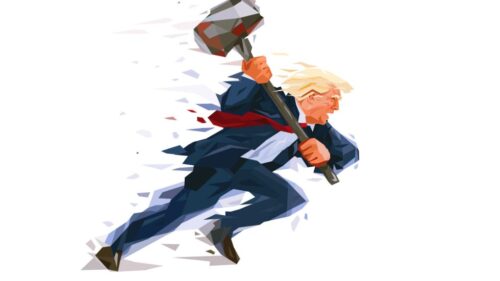
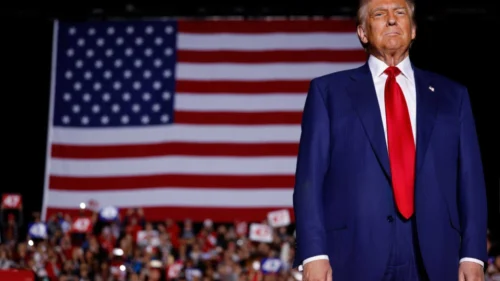
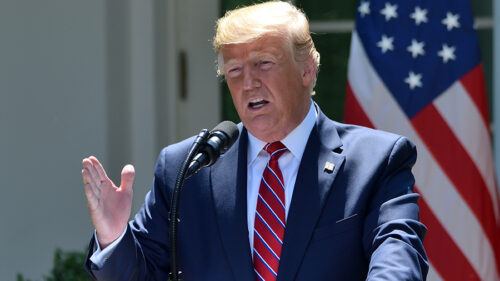
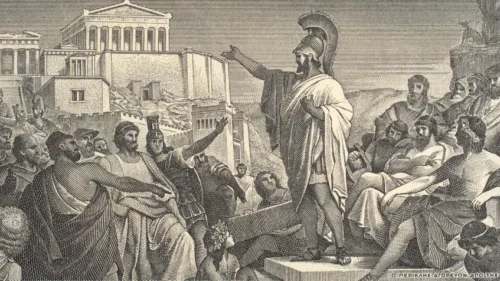
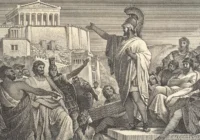

Comment